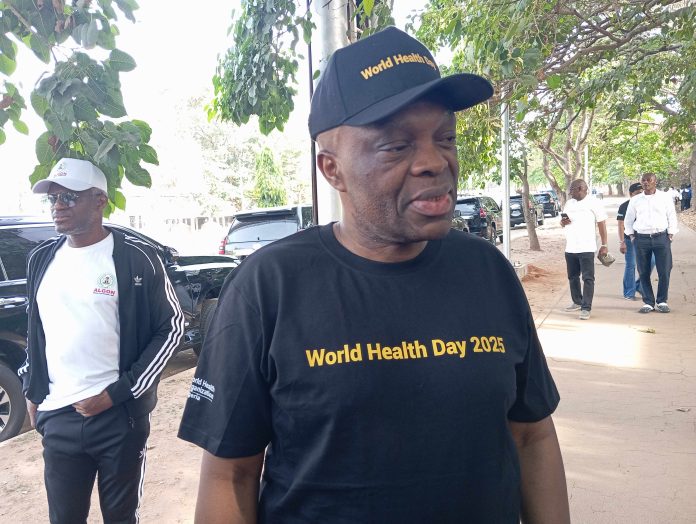…Backs MAMII Initiative To Accelerate Reduction in Preventable Deaths
As Nigeria joined the rest of the world to commemorate World Health Day 2025, the World Health Organization (WHO) has issued a strong call for urgent, collective action to address the country’s alarmingly high rates of maternal and neonatal mortality.
Speaking at a walk organized to mark the global health day in Abuja, Dr. Walter Kazadi Mulombo, WHO Country Representative in Nigeria, urged stakeholders to rise to the challenge, stating that too many Nigerian women and newborns are still dying from preventable causes.
“Today reminds us why WHO was created—to promote health, save lives, and ensure everyone can live a healthy life from birth to old age,” Dr. Mulombo said. “But the reality in Nigeria remains worrisome. Maternal and neonatal mortality rates are still unacceptably high, and we must act now.”
Citing figures from the Nigeria Demographic and Health Survey (NDHS), he acknowledged that while progress has been made, maternal and child health indicators still present a major concern. He noted that updated data is currently being analyzed by the Federal Ministry of Health and Social Welfare.
Dr. Mulombo expressed strong support for the government’s recently launched Mothers and Newborns Mortality Reduction Innovation and Initiative (MAMII), describing it as a critical step forward in accelerating progress.
“The MAMII initiative is a game-changer. It signifies a renewed commitment by government, civil society, and communities to drastically reduce preventable maternal and neonatal deaths,” he said. “This is not just a government problem—it’s everyone’s responsibility.”
Beyond maternal and newborn care, he emphasized the importance of preventive health and individual lifestyle choices. “This year’s theme, My Health, My Right, is a reminder that everyone has the right to quality healthcare, and that includes making informed decisions about our daily habits—staying active, eating well, and seeking timely medical care.”
Reaffirming WHO’s commitment, Dr. Mulombo said the organization will continue to strengthen Nigeria’s health system through technical support, training for healthcare workers, and improved service delivery.
“Our goal is clear—by 2030, Nigeria must significantly improve health outcomes. WHO stands ready as a committed partner to make that happen,” he concluded.
World Health Day, celebrated every April 7 since 1948, commemorates the founding of WHO and serves as a platform to spotlight key public health challenges. This year’s theme reaffirms the fundamental right of every individual—regardless of location or income—to access quality, affordable healthcare.

